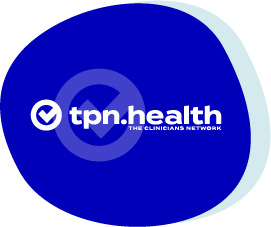
Module 6: The Social Atom: Mapping the Family and Social Network
Pricing
Information
Recorded
Learning Objectives
Participants will be able to:
-
Do a social atom on paper and share it in an individual or group setting.
-
Add a role play to a social atom to talk to self or another person from the atom..
-
Explain how a Social Atom creates a visual representation of the nature and sense of connectedness of the relational network at any moment in time.
-
Explain how a Social atom creates an entry point for the family of origin work.
-
Explain how a social atom creates an entry point for trauma work.
-
Create a protocol for incorporating the social atom into treatment as a diagnostic instrument, revealing a snapshot of a moment or period of time and the relational proxemics at that time.
Educational Goal
The educational goal of this module is for participants to learn about and be able to do a social atom.
Description
The social atom is a relationship diagram that reflects relative size and distance, closeness, overlaps, etc, in family, friends, or social networks. It is fluid in its layout and can include any relationships, including those with animals, deceased people, and/or institutions that feel relevant; it can be germane to any population as all information on it is self-reported. A social atom can be done for any system at any moment. It can serve as a diagnostic treatment map that reveals the nature of relationships with preferences, neutral connections, or rejections. It begins on paper and can be put into role plays, sculptures, or full psychodramas. Doing the social atom on paper and sharing it is a complete process in and of itself. There is no need to put it into action. It is a complete process in and of itself. Some suggested social atoms are:
- • Family of Origin
- • Frozen Moment
- • Empowered Moment
- • Future Projection
- • Treatment Protocol, social atom upon entry, during treatment, and future projection.
- • Support Network
The social atom is a fluid, user-friendly diagnostic instrument that provides significant information about the family structure. The social atom, which influenced the genogram, reveals not only family relationships but more complete networks, including friends, groups, etc., along with their underlying relatedness features. This expansiveness makes it an ideal instrument for treatment, hovering somewhere between a genogram and a family map. The social atom can be used on paper in one-to-one or group settings to assess/focus and be a springboard for discussion, it can be followed by experiential letter writing, empty chair role plays or two chair role plays. If clinicians receive training beyond the RTR-S certificate, the social atom can be moved into sculpturing and/or psychodramatic enactment. Participants will learn how to create a social atom, how to use it as a paper and pencil instrument and share it in one-to-one, in a group, or a virtual meeting. Participants also observe how to move it into a family sculpture/psychodrama if they have sufficient training and experience.
IMPORTANT NOTE: The RTR-S certificate does not cover adding sculpturing and full psychodrama to the social atom.
Presenters

Tian Dayton, Ph.D., is a Senior Fellow at The Meadows and a nationally renowned speaker, expert, and consultant in trauma, addiction, and psychodrama. Dr. Dayton is the director of The New York Psychodrama Training Institute and author of 15 books, including the soon-to-be-released Treating Adult Children of Relational Trauma, Sociometrics, Emotional Sobriety, The ACoA Trauma Syndrome, and others. A board-certified trainer in psychodrama, sociometry, and group psychotherapy, she’s spent her decades-long career adapting psychodrama and sociometry for work specifically with relational trauma and addictions. Her trademarked processes, Relational Trauma Repair/RTR-SOCIOMETRICS, are used nationally and worldwide. Dr. Dayton is a fellow of the American Society of Psychodrama, Sociometry and Group Psychotherapy ASGPP, winner of the Lifetime Achievement Award, their Scholar’s Award, the President’s Award, and former editor-in-chief of the Journal of Psychodrama, Sociometry and Group Psychotherapy. She also won The Marty Mann Award, The Mona Mansell Award, and The Ackermann Black Award. Dr. Dayton earned her masters in educational psychology and Ph.D. in clinical psychology. She served on the faculty at NYU for eight years and has appeared as a guest expert on NBC, CNN, MSNBC, and other major media outlets.
Financially Sponsored By
- Relational Trauma Repair (RTR)